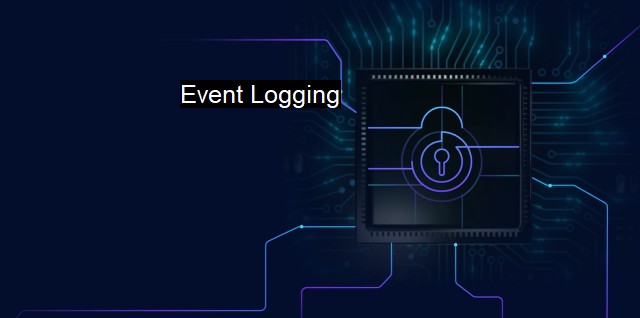What is Event Logging?
The Importance of Event Logging in Cybersecurity and Antivirus: Tracking and Monitoring System Activities for Security and Compliance
Event Logging, in the broad context of cybersecurity and antivirus initiatives, constitutes an indispensable resource informing individuals, businesses and systems administrators of all instances of network activity and operations occuring within their digital environments. The encompassing notion of Event Logging refers to the process where all activities carried out on a software, system, or network are automatically recorded. These include both user-initiated activities, and actions performed automatically by computers and network services.The recorded activities or 'logs' are usually timestamped and stored in a consolidated, secure database. The stored log's data can be used, analyzed or monitored to discern patterns, trends, irregularities, threats, or breaches. Therefore Event Logging serves a specific, critical, and unique function providing the first line of defense against potential cyber-attacks and a first-rate source of traceable evidence when and if a breach occurs.
Event Logging monitors for specific events deemed essential for the safety and optimal function of networks and computing environments. it may track 'successful login attempts' or 'failed password input.' In the context of antivirus, Event Logging looks to chronicles virus-related events, such as instances when an antivirus program activates to neutralize an apparent threat, or when updated virus definitions are downloaded.
Event Logging plays a crucial role in systems' security strategy. It bolsters security on multiple fronts due to it providing real-time tracking and historical analysis capabilities. The real-time aspect allows administrators to swiftly react to threats by offering immediate alerts of suspicious or unexpected behavior. an immediate alert can be triggered when a user tries repeatedly to log in with incorrect passwords, which may signify a possible hacking attempt.
On the other hand, the benefit of historical logs is that they enable rigorous post-event analysis. By examining long-term trends and past records, IT professionals can get ahead of potential attacks or system vulnerabilities before they take full shape. The practice can even feed into predictive analysis and help administrators better forecast and prevent future network breaches.
Simultaneously, Event Logging is a vital tool in an incident response scenario, providing detailed insights and reconnaissance for forensic investigations. For instance, during a security breach, Event Logging can provide critical information about what was accessed, how it was accessed, and most importantly, who accessed it. By retracing the steps of a cyber intruder, it's possible to pinpoint the exact circumstances around the attack, allowing for more decisive and precise countermeasures.
These logs have tremendous auditing value. For organizations required to adhere to specific governance framework or regulatory statutes (HIPAA, PCI-DSS, etc.), maintaining comprehensive and up-to-date logs is a non-negotiable necessity. It ensures that organizations have liability coverage and proof of due diligence in the case of external reviews or internal audits.
Event Logging, in the domains of cybersecurity and antivirus, performs an array of functions vital for digital security assurance. It facilitates real-time threat detection, a historical account of system activities, aids forensic investigations after cybersecurity incidents, and provides organizations with important auditing data to help meet compliance requirements. It offers a means of tracking, documenting, and analyzing activity on networks, an immense help to anyone tasked with protecting digital and network assets. From an antivirus perspective, Event Logging documents all protective behaviors enacted to neutralize respective threats. An essential, yet often overlooked pillar of a robust cybersecurity and antivirus strategy is the mundane but vital task of keeping a comprehensive and detailed log of system events.

Event Logging FAQs
What is event logging in cybersecurity?
Event logging in cybersecurity refers to the process of recording information related to security events or incidents that occur on a system or network. These events are usually logged in a central database, which helps in analyzing and monitoring security threats.What are the benefits of event logging in antivirus software?
Event logging in antivirus software can help in detecting and preventing cyber threats, such as malware infections and hacking attempts. This information can be used to develop better security measures, improve incident response and aid in forensic investigations.What kind of events are logged in event logging?
The events logged in event logging can vary depending on the system or network being monitored but usually include activities such as logins and logouts, file access, software installations, system crashes, network traffic, and security-related events such as antivirus scans and alerts.How can event logging be used in incident response?
Event logging can be used in incident response by providing valuable information about the sequence of events leading up to an incident. This can help in identifying the root cause of the problem, minimizing the impact of the incident, and preventing similar incidents from occurring in the future. Additionally, the information can aid in the investigation and prosecution of cybercriminals.| | A | | | B | | | C | | | D | | | E | | | F | | | G | | | H | | | I | | | J | | | K | | | L | | | M | |
| | N | | | O | | | P | | | Q | | | R | | | S | | | T | | | U | | | V | | | W | | | X | | | Y | | | Z | |
| | 1 | | | 2 | | | 3 | | | 4 | | | 7 | | | 8 | | |||||||